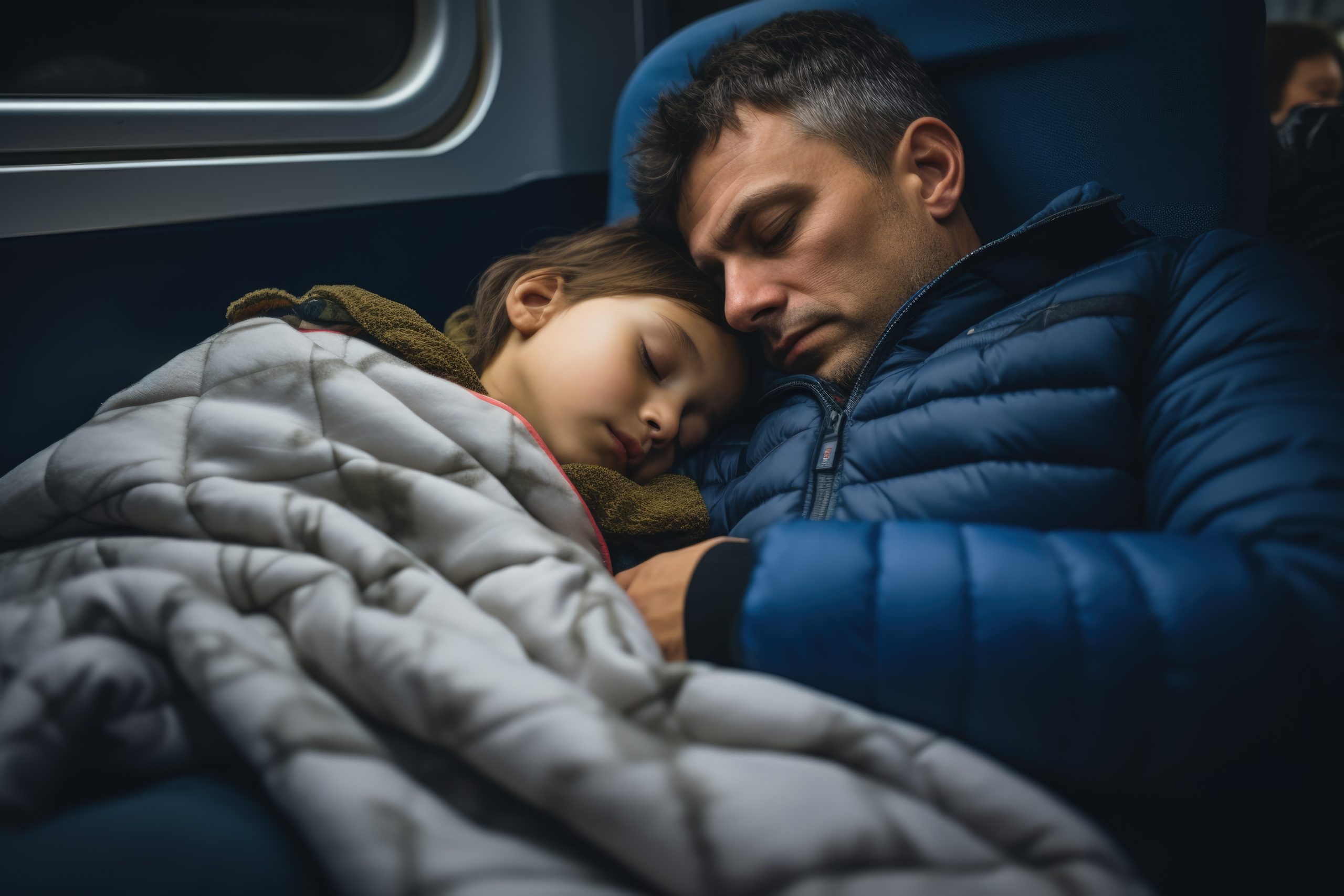Traveling is often exciting—new destinations, cultures, and experiences. But while your days might be filled with adventure, your nights can bring frustrating sleep disruptions. If you’ve ever wondered, “Why do I sleep worse when traveling?”—you’re not alone. Sleep problems during travel are common, but fortunately, there are natural solutions to help you sleep better on the road.
Thank you for reading this post, don't forget to subscribe!
Why You Sleep Worse When Traveling
1. Disruption of Your Circadian Rhythm
Your body’s circadian rhythm—also known as your internal clock—regulates your sleep-wake cycle. It is highly sensitive to light, temperature, and routine. When you travel, especially across time zones, your circadian rhythm becomes misaligned with your new environment. This leads to jet lag, causing symptoms like insomnia, fatigue, and irritability.
2. Jet Lag and Time Zone Changes
Jet lag is one of the most common reasons for poor sleep while traveling. Flying east is often harder than flying west because it shortens your day, which is more difficult for your body to adjust to. It can take several days for your body to fully sync with the local time.
3. Unfamiliar Sleeping Environment
Even if you’re in a luxurious hotel, it’s not your bed. Unfamiliar beds, pillows, room temperatures, noises, and lighting can all interfere with your sleep quality. Your brain remains slightly alert in new environments, a phenomenon called the “first-night effect.”
4. Travel-Related Stress or Anxiety
Planning flights, navigating new places, and adjusting to new routines can increase travel stress. Elevated cortisol levels (the stress hormone) can make it harder to fall asleep or stay asleep, contributing to sleep disturbances when traveling.
5. Disrupted Sleep Routine
Your usual bedtime rituals might get thrown out of sync while traveling—late dinners, early flights, sightseeing, or socializing can interfere with your normal sleep routine, reducing sleep quality.
How to Fix Travel Sleep Problems Naturally
Now that you understand why you sleep worse when traveling, let’s explore natural remedies to improve sleep quality while on the go.
1. Adjust Your Sleep Schedule in Advance
Start shifting your sleep and wake times a few days before your trip. If you’re heading east, try going to bed and waking up earlier. For westward travel, shift later. This gradual adjustment helps align your circadian rhythm with your destination before you even arrive.
2. Stay Hydrated and Avoid Caffeine or Alcohol
Dehydration worsens fatigue and jet lag. Air travel is especially dehydrating, so drink plenty of water before, during, and after your flight. Avoid alcohol and caffeine, especially in the evening, as they can interfere with natural sleep cycles.
3. Expose Yourself to Natural Light
One of the best ways to reset your internal clock is exposure to natural sunlight. Spend time outdoors, particularly in the morning, to cue your body into the new time zone and boost melatonin regulation.
4. Create a Familiar Sleep Environment
Bring familiar items from home—such as a travel pillow, eye mask, blanket, or even your usual pajamas. These familiar cues can signal to your brain that it’s time for sleep, even in an unfamiliar location.
5. Use Natural Sleep Aids
Instead of over-the-counter sleeping pills, try natural sleep aids like:
- Melatonin supplements: A hormone your body produces to regulate sleep. Taking a small dose an hour before bedtime can help reset your internal clock.
- Chamomile tea: Has mild sedative effects that may promote relaxation.
- Lavender essential oil: Proven to reduce anxiety and improve sleep quality when used as aromatherapy.
6. Practice Relaxation Techniques
Engage in relaxation techniques for better sleep such as:
- Deep breathing
- Progressive muscle relaxation
- Meditation or mindfulness
- Gentle yoga or stretching before bed
These help calm your nervous system and lower stress hormones, which can make it easier to fall asleep.
7. Stick to a Sleep Routine When Possible
Try to maintain your usual bedtime routine while traveling. This includes consistent sleep and wake times, winding down with a book, and avoiding screens before bed. These habits help train your brain to recognize when it’s time to rest—even in a new environment.
8. Use Blue Light Filters and Limit Screen Time
Electronic screens emit blue light, which can suppress melatonin production and make it harder to fall asleep. Use blue light filters or glasses and avoid screens at least an hour before bed to support healthy melatonin levels.
9. Use White Noise or Earplugs
Unfamiliar sounds can be disturbing. A white noise machine or app can block out background noise. Alternatively, earplugs can help you sleep through noises like traffic, hotel hallway chatter, or snoring.
Also read: How To Deal With Jet Lag Seven Tips And Suggestions
Sleep problems while traveling don’t have to ruin your trip. Understanding why you sleep worse when traveling—and more importantly, how to fix it naturally—can make a big difference. From regulating your circadian rhythm and limiting blue light exposure to using natural sleep aids and maintaining a consistent bedtime routine, small adjustments can significantly improve your sleep quality while traveling.
With these natural strategies, you’ll be well on your way to restful nights and energized days—no matter where in the world you are.



